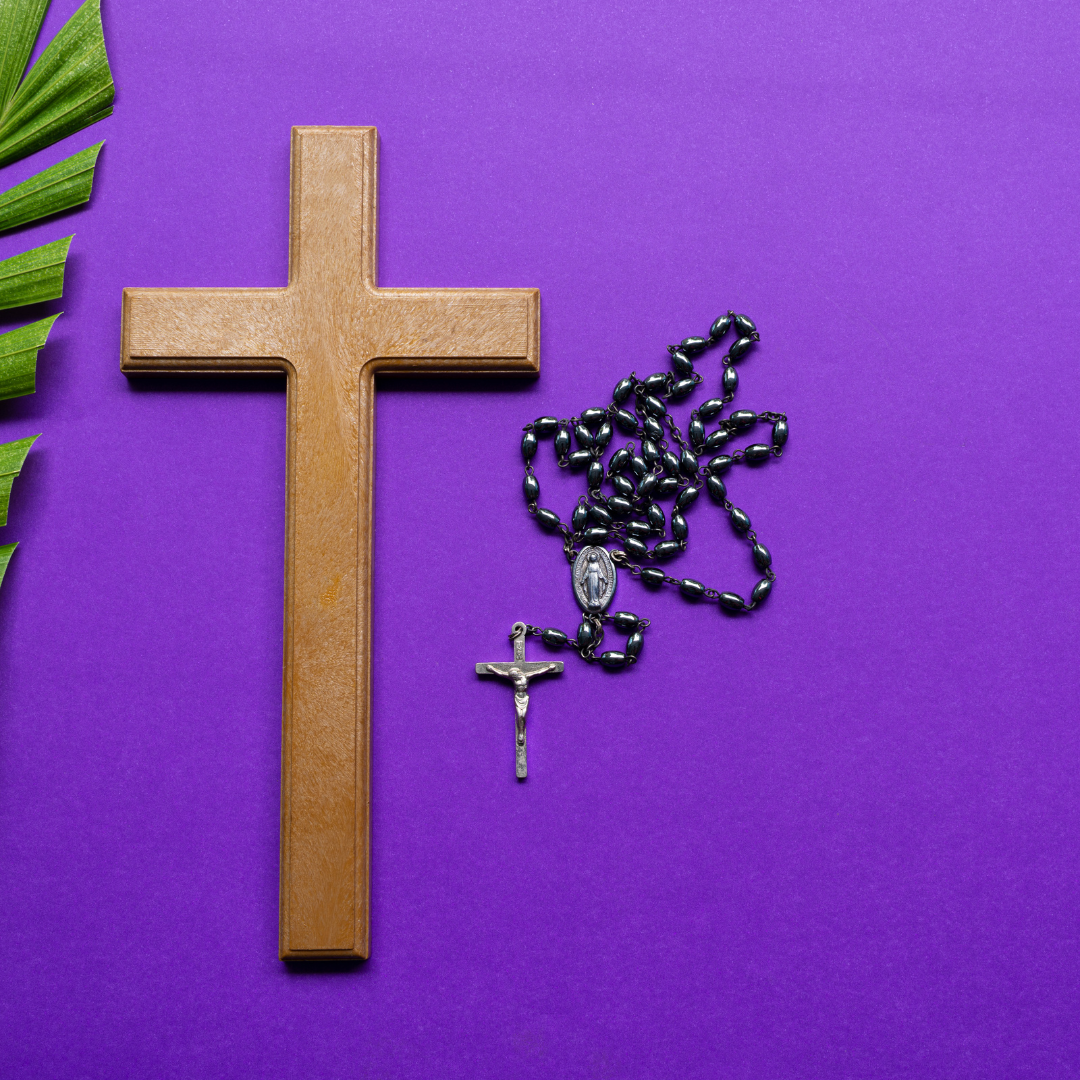A Guide to Having a Meaningful Spiritual Renewal through Ash Wednesday
Introduction
Ash Wednesday is the first Lenten season observance for many Christian denominations. It is a day of repentance, reflection, and renewal. Ash Wednesday marks the beginning of fasting, prayer, and almsgiving leading to Easter Sunday. The day is steeped in history and tradition, with centuries-old practices that still hold meaning today. Whether through prayer services with ashes, abstaining from meat, or engaging in acts of charity and kindness, Christians worldwide come together in solemn celebration on this special day. From its ancient roots to its modern-day significance, Ash Wednesday is an important event that continues to bring people closer to God.
Definition
Ash Wednesday is a day of great significance for many Christians. It is the first observance in the Lenten season and marks a time of repentance, reflection, and renewal. On this day, ashes are placed on the forehead as a reminder of mortality, and individuals are called to abstain from certain activities or foods as an act of penance. Christians also come together in prayer services or engage in acts of charity and kindness to honor God's grace. Ash Wednesday has been a day of worship through fasting, almsgiving, and prayer for centuries.
As we enter this season of Lent, let us remember the significance of Ash Wednesday and the opportunity it gives us to draw near to God. Let's journey through history together and explore how Ash Wednesday has been celebrated for centuries.
History
Ash Wednesday has been celebrated by Christians for centuries and is a meaningful event that marks the start of the Lenten season. It serves as a reminder of mortality, with ashes placed on the forehead as an act of penance, and it calls us to abstain from certain activities or foods. Additionally, Christians come together in prayer services or engage in acts of charity and kindness to honor God's grace.
Throughout history, Ash Wednesday has been marked with solemnity and reverence. In ancient times, people would fast during this time and wear sackcloth—a type of black clothing made from rough material—as an outward sign of mourning. Likewise, churches often hold special Ash Wednesday services where individuals are invited to receive ashes on their foreheads while they reflect on repentance and renewal.
This year, let us take this opportunity to draw closer to God through fasting, almsgiving, and prayer during the season of Lent. May we all remember what Ash Wednesday stands for—repentance, reflection, and renewal—and use this day to recommit ourselves to living lives devoted to Him.
Significance to Christian Church
Ash Wednesday is an important day for the Christian Church, providing an opportunity for reflection and repentance. It marks the beginning of the Lenten season and reminds all Christians of our mortality and needs for redemption. During this time, many churches offer special services where individuals are invited to receive ashes on their foreheads as a sign of humility and penance. Additionally, fasting, almsgiving, prayer, and acts of service are often encouraged during this solemn season.
The act of receiving ashes on Ash Wednesday is symbolic—the Ash itself is made up of burnt palm leaves from the previous year's Palm Sunday celebration—and it serves as a visible reminder that sin has consequences and that we should strive to live lives devoted to God. It calls us to abstain from certain activities or foods to focus on spiritual growth and renewal.
Therefore, Ash Wednesday carries significant weight in the Christian Church, encouraging us all to remember our mortality and recommit ourselves to living lives devoted to God. As we enter the Lenten season together, let us take the opportunity to draw closer in faith and fellowship with our Lord Jesus Christ.
Imposition of Ashes
The Imposition of Ashes is an ancient ritual practiced for centuries on Ash Wednesday as part of the Lenten observance. During this tradition, several blessed ashes are placed on each worshiper's forehead in the cross sign. This symbolizes our mortality and our need to repent and return to God. The ashes remind us that even though we are dust, God still loves us and offers us grace and mercy.
This solemn ritual is meant to be a time of reflection and repentance before God. As believers receive the ashes on their foreheads, they may reflect on their sins and seek forgiveness through prayer. It also reminds us that we all share the same human frailty – no one is perfect or beyond reproach.
Though it may seem strange to some, the imposition of ashes is integral to spiritual growth during the Lenten season. It serves as a reminder that when we come before God with broken hearts and contrite spirits, He will forgive us and help us become closer to Him. May this Ash Wednesday bring peace to your soul as you accept His love through this sacred ritual!
Days of Fasting and Abstinence from Meat
Days of Fasting and Abstinence from Meat during the Lenten season are a time-honored tradition that many Christians observe as a way to draw nearer to God. On Ash Wednesday, the beginning of Lent, we remember our mortality and need for repentance. We receive ashes on our forehead in the sign of the cross as a reminder that we are all human and not perfect. This ritual is meant to invite us to turn away from our sins and toward God in the hope of His grace and mercy.
Many believers also observe abstaining from meat every Friday throughout LentMany believers follow the practice of abstaining from meat every Friday throughout LentMany believers also observe the practice of abstaining from meat every Friday throughout Lent as an act of self-discipline, penance, and spiritual growth. Denying ourselves something we enjoy, like meat, helps us focus more fully on Jesus Christ's ultimate sacrifice. It also serves as a reminder that our physical needs are secondary to our spiritual ones.
Days of fasting and abstaining from meat are one way to honor God during the Lenten season. May this be a time of reflection, repentance, and spiritual growth for you!
Conclusion
As we enter the Lenten season, let us reflect on our lives and turn towards God in humility. We can draw nearer to God's grace and experience his love through prayer, scripture reading, and worship services. As we receive ashes on Ash Wednesday, may it serve as a reminder of our mortality and Jesus' ultimate sacrifice for us. Let us go forth with joy and gratitude, knowing he will provide a way out of any brokenness or sin we might experience.
FAQ
What is the significance of Ash Wednesday for Catholics?
Ash Wednesday is a day of penance and reflection for Catholics. It marks the beginning of Lent, 40 days of fasting and prayer leading up to Easter. Catholics are encouraged to practice self-control, humility, and repentance during this time. The ashes used on Ash Wednesday symbolize mortality and repentance and remind us of our need for God's grace.
Source: catholic.org, indystar.com, simplycatholic.com
What are the benefits of observing Ash Wednesday for Catholics?
Observing Ash Wednesday can provide spiritual, physiological, and physical benefits for Catholics. Spiritually, it can help deepen one's faith and practice of repentance. Physiologically, it can help promote self-control and mindfulness. Physically, fasting and abstaining from meat can help promote better health.
Source: britannica.com, foxnews.com
What are the rules of observance for Ash Wednesday in the Catholic Church?
The Catholic Church requires that Catholics observe Ash Wednesday by fasting and abstaining from meat. In addition, Catholics are encouraged to attend a particular Ash Wednesday Church service, where they will receive ashes on their foreheads. This is accompanied by the words, "Repent and believe in the Gospel," or the dictum, "Remember that you are dust, and to dust, you shall return."
What is an appropriate tradition to practice on Ash Wednesday?
On Ash Wednesday, Catholics are encouraged to practice self-control, humility, and repentance. This could include fasting, abstaining from meat, praying, meditating on scripture, or attending a unique Ash Wednesday Church service.
What is the significance of purple to Ash Wednesday in the Catholic Church?
In the Catholic Church, purple is the liturgical color of Lent, which begins on Ash Wednesday. The color purple symbolizes repentance and the royalty of Christ as King of all Kings. It is also a reminder of His passion and death for our sins.
Source: blog.ecclesiasticalsewing.com monitor.co.ug catholic.org
Ash Wednesday is traditionally observed by what age groups of people? What role do seniors play in the equation? What about children? What about sick people?
Ash Wednesday is traditionally observed by people of all ages, including seniors, children, and those who are sick or disabled. For seniors, it is an opportunity to reflect on their lives and deepen their faith. For children, it is a time to learn about the importance of repentance and humility. For those who are sick or disabled, it is a time to focus on their need for God's grace and mercy.
Source: usatoday.com
What are the potential implications of not attending church on Ash Wednesday? Is confession required on Sunday if Ash Wednesday was not observed? Is abstention from participation on Ash Wednesday considered a sin?
Not attending church on Ash Wednesday has no particular implications for Catholics. Confession is not required on Sunday if Ash Wednesday is not observed. Abstention from participation on Ash Wednesday is not considered a sin, but it is encouraged as a way to practice self-control and deepen one's faith.
Source: vatican.va christianity.com, usccb.org
Which Christian groups observe Ash Wednesday? Which Christian groups don't observe Ash Wednesday?
Catholics observe Ash Wednesday in the Roman Rite, Lutherans, Moravians, Anglicans, Methodists, and Nazarenes, and some churches in the Reformed tradition (including certain Congregationalist, Continental Reformed, and Presbyterian churches). Some non-denominational Christian groups do not observe it.
Do other religions have a similar observance as Ash Wednesday? which religion is outside of Christianity? Why?
Other religions, such as Judaism and Islam, do not have a similar observance as Ash Wednesday. However, some Hindu and Buddhist traditions use ashes to symbolize repentance and mortality. This is usually done as part of a spiritual practice or ritual.
Source: xavier.edu
Are there other religions that observe similar rituals to Lent, such as prayer and fasting?
Yes, other religions observe similar rituals to Lent, such as prayer and fasting. For example, in Judaism, the Day of Atonement (Yom Kippur) is a day of fasting and prayer. In Buddhism, fasting is practiced during certain times of the year. In Hinduism, several fasting rituals, such as Ekadashi, are observed throughout the year.
Source: culturalwareness.com, islamonline.net, tribune.com.pk
What books are available to provide further information on Ash Wednesday and Lent?
If you'd like to learn more about the spiritual significance of Ash Wednesday and Lent, many excellent books are available. We have included some books you purchase online at Amazon for your review.
Journey to the Center: A Lenten Passage by Thomas Keating. You might find Journey to the Center: A Lenten Passage by Keating, Thomas, an excellent book for your Ash Wednesday and Lent journey. This book offers meditations that will feed your faith, renew your hope, and bless your journey of love. It follows the journey from the stark beginning of Ash Wednesday to the joyous climax of Easter Sunday. It is a great way to reflect on Lent's spiritual journey and better understand the season. This book will be a great companion as you explore the spiritual significance of Ash Wednesday and Lent.
The Passionate Journey: Walking into the Darkness Towards the Light of Easter by Mart A. Bullis. If you're looking for a book to help you reflect on Ash Wednesday and Lent, I recommend The Passionate Journey: Walking into the Darkness Towards the Light of Easter by Marty A. Bullis. This book offers 47 Lenten devotions that will help you slow down and appreciate the ultimate sacrifice made by Christ on our behalf. It's divided into four 10-day sections with a particular portion for Easter holy week, so you can attend to Jesus' sacrifice and apply the message of the Passion to your life. Even if your faith tradition doesn't usually include Lenten devotions, this book will provide a meaningful retreat for you. You'll be able to reflect on the journey of Jesus and how it applies to your life.
The Lenten Labyrinth: Daily Reflections for the Journey of Lent (Daily Reflections for the 40-Day Lenten journey) by Edward Hays. If you're looking for a book to help you reflect on Ash Wednesday and Lent, I recommend The Lenten Labyrinth: Daily Reflections for the Journey of Lent (Daily Reflections for the 40-Day Lenten journey) by Edward M. Hays. This book offers daily reflections to help you explore the complex twisting patterns of the Lenten journey. Each day's reflection is followed by brief questions and exercises to help you reflect on the implications of the trip. This book is perfect for those short on time, as it only takes a few minutes to read each day's reflection. You'll be able to nourish your soul and find authentic renewal as you journey through Lent and into the heart of Holy Week.
Give Up Something Bad for Lent: A Lenten Study for Adults by James W. Moore. This book offers a unique approach to the traditional Lenten practice of giving something up. Rather than giving up something like chocolate, this book encourages readers to give up something spiritually that they would be better off not doing. It provides seven sessions, one for each Sunday in Lent and Easter Sunday, that feature Scripture references, personal readings, questions for personal reflection or group study, and closing prayer. This book is perfect for those looking to take their Lenten journey to the next level and make a meaningful sacrifice. You can use this book to help you focus on eliminating one destructive habit or attitude and fully prepare to embrace the "Good News" of Easter.
Journey To The Cross by Paul David Tripp. You might find Journey To The Cross by Paul David Tripp an excellent book for Ash Wednesday and Lent. This devotional book invites you to set aside time to focus on the suffering and sacrifice of Jesus. Each of the short readings encourages you to abide in the abundant joy found in Christ as you encounter the Savior more fully and follow Him more faithfully during this Lenten season. This book is a great way to reevaluate and recalibrate the values of your heart to match those of your suffering Savior.
Source: Amazon.com


























Leave a comment